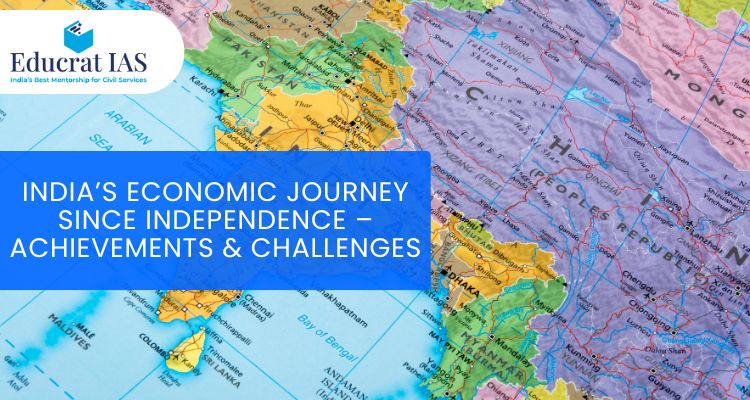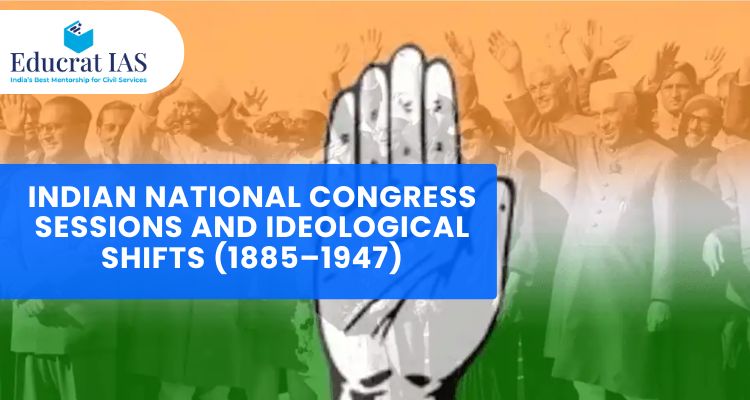Indian democracy is not just about elections, political parties, or parliamentary debates—it is equally about the active involvement of citizens and organizations outside the formal structures of the State. This sphere, commonly known as civil society, plays a pivotal role in shaping democratic governance in India. For UPSC aspirants, understanding the significance of civil society is essential, as it links with topics across Polity, Governance, Social Issues, and Ethics.
What is Civil Society?
Civil society refers to the space between the State and the individual citizen. It includes a wide range of non-state, voluntary, and non-profit organizations that represent the interests, values, and aspirations of people. These can include:
-
Non-Governmental Organizations (NGOs)
-
Community-based organizations
-
Social movements and advocacy groups
-
Professional associations and think tanks
-
Media and citizen forums
In short, civil society embodies the collective voice of citizens in a democracy.
Constitutional and Legal Backing
Civil society is not explicitly mentioned in the Constitution, but its role flows from various provisions that emphasize citizen participation and rights:
-
Article 19(1)(a) – Freedom of speech and expression.
-
Article 19(1)(c) – Right to form associations or unions.
-
Article 21 – Right to life with dignity, often advanced by civil society initiatives.
-
Directive Principles of State Policy (DPSPs) – Encourage participatory democracy and social justice.
The Supreme Court has also recognized civil society’s importance in ensuring accountability and transparency, particularly in PILs and rights-based movements.
Role of Civil Society in Indian Democracy
1. Strengthening Participatory Democracy
Civil society acts as a bridge between the government and the people. It amplifies citizens’ voices in policymaking and ensures that governance is not limited to bureaucrats and politicians.
2. Promoting Accountability and Transparency
Movements like the Right to Information (RTI) campaign, led by groups such as the Mazdoor Kisan Shakti Sangathan (MKSS), are examples of civil society demanding openness in government functioning.
3. Safeguarding Rights and Justice
Civil society organizations (CSOs) often champion the cause of marginalized groups—Dalits, women, tribal communities, and minorities. Landmark legislations like the Forest Rights Act, 2006 were influenced by persistent advocacy from civil society groups.
4. Policy Innovation and Service Delivery
Beyond activism, civil society contributes to developmental initiatives—rural education, healthcare, women empowerment, environmental protection, etc. NGOs like Pratham in education and SEWA in women empowerment showcase this contribution.
5. Ethical and Moral Compass
In times of social tension, civil society becomes a platform for dialogue, tolerance, and ethical guidance. It nurtures the values of constitutional morality essential for democracy.
Challenges Faced by Civil Society
While civil society plays a constructive role, it is not free from limitations:
-
Overdependence on foreign funding – raising questions of accountability and national interest.
-
Politicization of NGOs – some organizations act as fronts for political or vested interests.
-
Regulatory hurdles – strict FCRA rules have made funding difficult for several NGOs.
-
Lack of transparency – not all CSOs maintain internal accountability.
These challenges often create tension between the State and civil society.
Civil Society and UPSC Preparation
For aspirants, civil society is a recurring theme:
-
Polity & Governance (GS-II): Role of NGOs, SHGs, and pressure groups in democracy.
-
Essay Paper: Topics like “Participatory Democracy in India” or “The Role of Civil Society in Nation Building”.
-
Ethics (GS-IV): Civil society as a tool of ethical governance.
👉 At Educrat IAS, our Polity and Governance modules cover such themes in depth, linking theory with current examples—helping aspirants write value-enriched answers. Explore our UPSC GS-II Program to strengthen your understanding of governance issues.
Way Forward
Civil society in India must evolve with time. Its focus should be on:
-
Strengthening grassroots participation rather than urban elite activism.
-
Enhancing transparency and self-regulation to gain public trust.
-
Partnering with government initiatives like Digital India, Swachh Bharat, and Skill India for inclusive development.
-
Using technology and social media responsibly to spread awareness without misinformation.
In essence, civil society must complement, not confront, the democratic state.
Conclusion
Civil society is the lifeblood of Indian democracy, ensuring that governance remains accountable, inclusive, and participatory. It represents the power of organized citizens to hold the State accountable while contributing to nation-building. For UPSC aspirants, mastering this theme provides not just exam-ready content but also a deeper appreciation of India’s democratic ethos.
FAQs on Civil Society in Indian Democracy
Q1. What is the difference between civil society and NGOs?
Civil society is a broader term that includes NGOs, social movements, media, citizen groups, etc., while NGOs are just one form of organized civil society.
Q2. How does civil society influence policymaking?
Through advocacy, awareness campaigns, public mobilization, PILs, and expert policy inputs, civil society pushes governments to adopt citizen-centric policies.
Q3. Why is civil society important for UPSC preparation?
Because it links with Polity, Governance, Essay, Ethics, and even Current Affairs—helping aspirants write multidimensional answers.
Q4. What are some famous examples of civil society movements in India?
RTI movement, Narmada Bachao Andolan, Anti-corruption movement (2011), and campaigns for environmental protection and women’s rights.
Q5. What are the challenges faced by civil society in India?
Overregulation, funding issues, lack of transparency, and politicization of NGOs.






